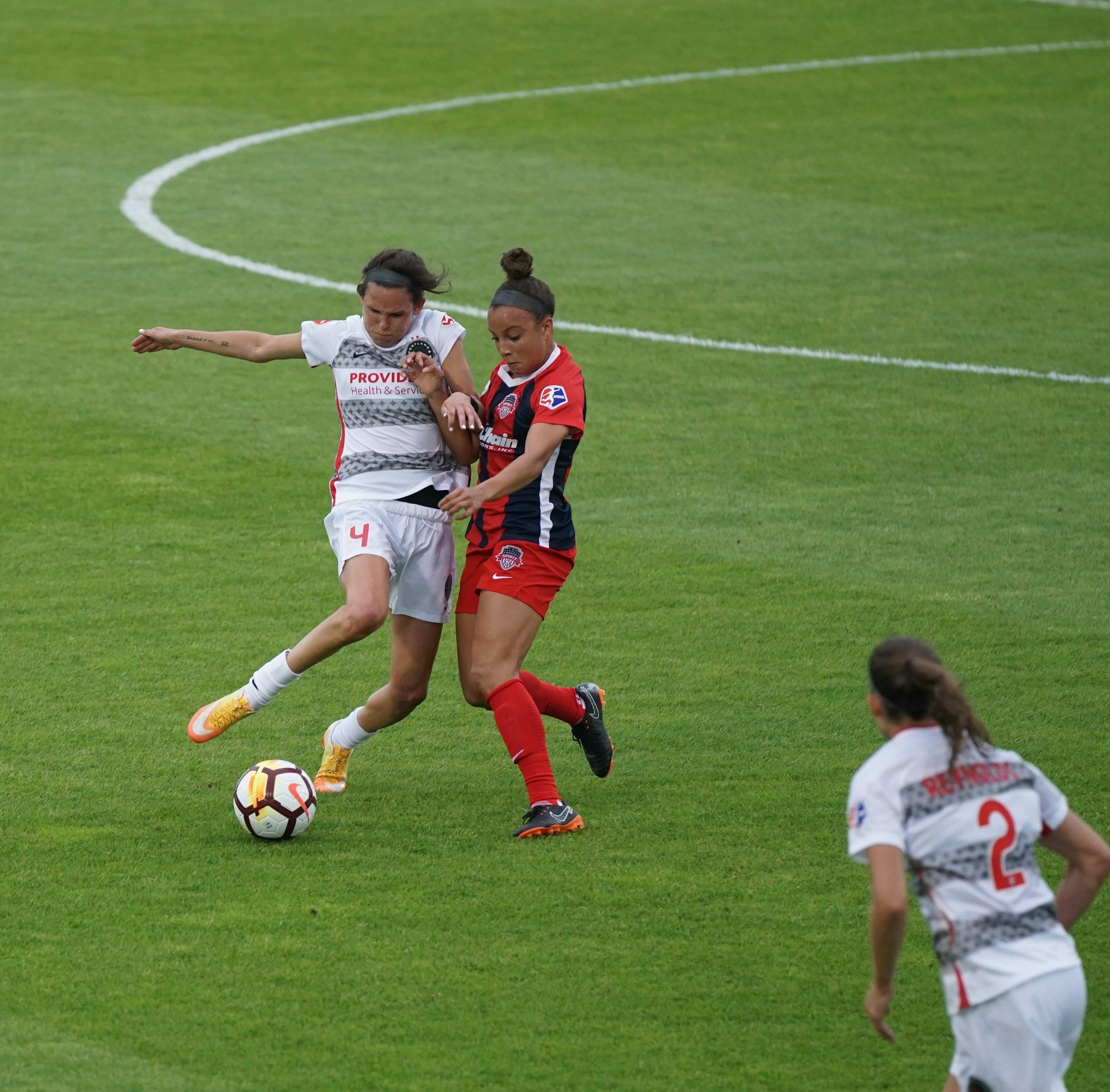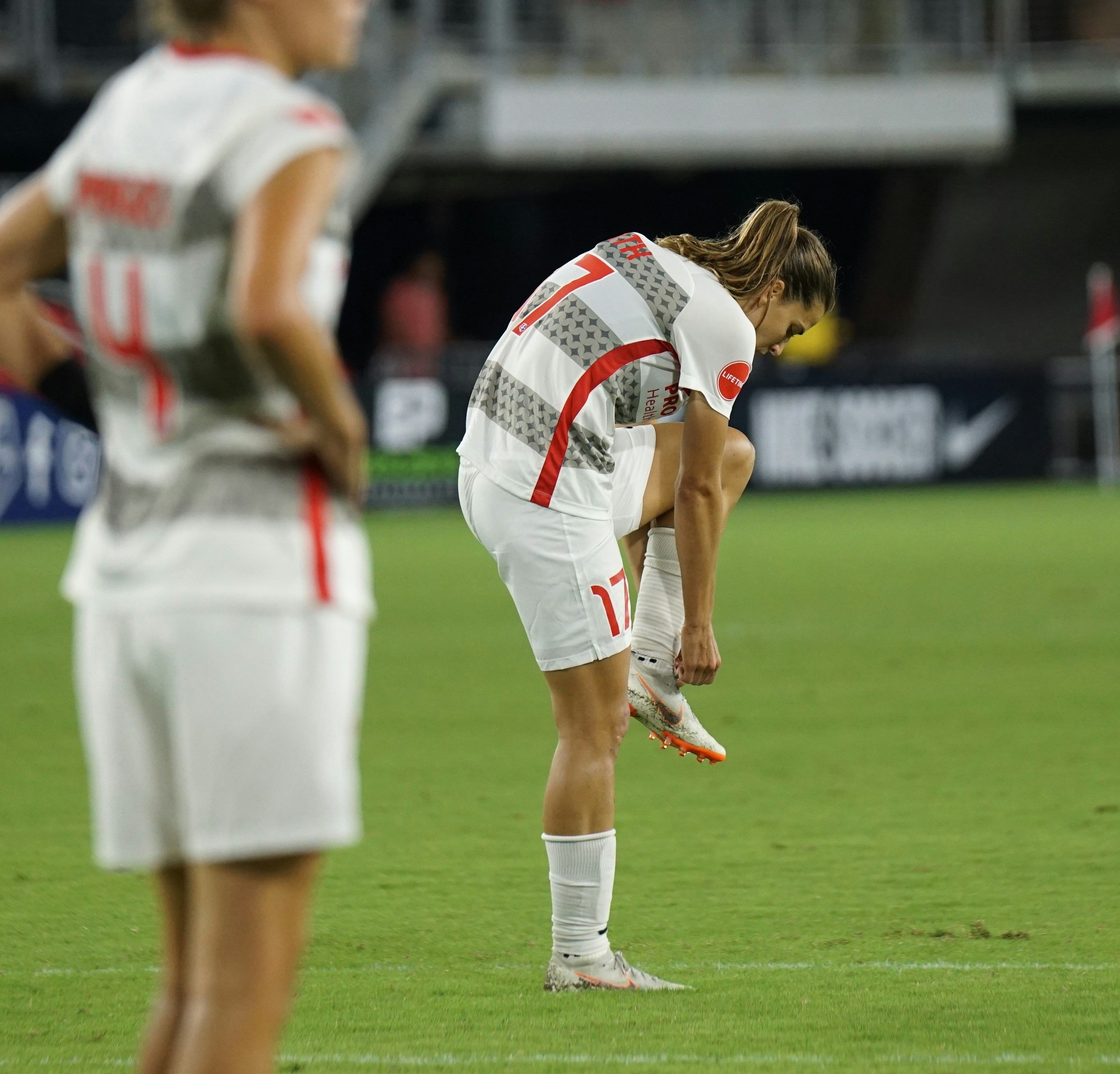Looking for a specific women’s football research topic?

A data-driven framing of player and team performance in U.S. Women's soccer
Because many of the issues hindering the progress of women's soccer are rooted in media and managerial practices that marginalize or ignore its positive traits, a need exists for analyses that will properly identify its innate characteristics and competitive advantages so that media members, managers, and fans can accurately frame their perceptions of women competing in the sport.

Exploring determinants of international transfers of women soccer players in Portuguese football
In this article, the author collected all transfers from the two seasons with the most records in Portugal (the 2019/2020 and 2020/2021 seasons) and analyzed transfer movements.

Impact of the Menstrual Cycle on Physical Performance and Subjective Ratings in Elite Academy Women Soccer Players
Our study aimed to combine psychological and physical factors to explore the impact of the menstrual cycle on performance in elite academy women soccer players through weekly monitoring.

Match Exposure, Consecutive Match Number, and Recovery Days Affect Match Running During International Women's Soccer Tournaments
To determine the influence of tournament-specific factors (match exposure, consecutive matches, and days between matches) on match running in women's international soccer players (footballers), 28 players from 1 national team were observed over 4 international tournaments using 10 Hz global positioning system units.

Tactics analysis and evaluation of women football team based on convolutional neural network
In order to realize the process of player feature extraction and classification from multi-frequency frame-changing football match images more quickly, and complete the tactical plan that is more conducive to the game, this paper puts forward a method for analyzing and judging the tactics of women’s football team based on Convolutional Neural Network (CNN).

‘Considering the reality, I am very lucky’: how professional players and staff perceive injury prevention and performance protection in women’s football
To explore the beliefs and perceptions of professional female footballers and staff regarding injury prevention and performance protection in professional women’s football.

A pioneering study on training attacking corners in women's football
The objective of this study was to develop a novel approach in women's football aimed at enhancing performance in attacking corners.

Enhancing ball passing creativity and effectiveness in youth women's football:A single-case study
A didactic approach known as psychokinetic games (PGs) has been developed to enhance cognitive abilities, including concentration, attention, and anticipation. Consequently, this study aimed to assess the impact of PGs on tactical creativity, passing effectiveness, and ball control in youth women's soccer players.

Analysis of peak locomotor demands in women’s football–the influence of different epoch lengths
The aim of this study was to analyse the peak locomotor demands of short time epochs (15, 30, 45, and 60 seconds) in women’s football, with special emphasis over the high-speed metrics.

A new hope? FIFA 2.0, FIFA Women’s Football Strategy, and event bidding for the 2023 FIFA Women’s World Cup
This paper interrogates the conjunctural politics of the FWWC23 competitive bid process, exploring the unique ways in which FIFA shapes, influences, and controls event bidding for the FIFA Women’s World Cup.

FIFA Women’s Football Strategy: 2018 – 2027
This links to the FIFA Women’s Football strategy for 2018-2027.

The Influence of Match Status on Ball Possession in High Performance Women’s Football
The objective of this study was to examine the effect of the situational match status variable on the ball possession of the teams that participated in the 2015 FIFA Women’s World Cup.

Performance Considerations in Women’s Football
The objective of the current systematic review was therefore to summarize existing quantitative research into the relationship between psychological factors and performance in women's football.

Beyond physical ability—predicting women’s football performance from psychological factors
The present study aimed to examine the predictive value of psychological factors on female football players’ match performance.

Media Framing of Women’s Football During the COVID-19 Pandemic
This article examines British media coverage of women’s association football during the coronavirus (COVID-19) pandemic, to identify how the media framed the women’s game and how these frames could shape the public perceptions of it.

The Incompatibility of Motherhood and Professional Women's Football in England
This article offers an examination of the gender-specific needs of women as professional footballers, focusing specifically on the distinctive aspect of maternity policy.

Identifying Strategies for Attracting Sponsors in the Women's Football League of Iran
The purpose of this study was to identify strategies attracting sponsors for Iranian women's football league.

Kicking against tradition: women's football, negotiating friendships and social spaces
This article examines friendships and social networks in the context of amateur women’s football.

Women’s football studies: an integrative review
Focusing on the social sciences, humanities and management disciplines, the purpose of this paper is to map and organise contributions, and to identify research directions for future studies within these disciplines.

Policy, political and economic determinants of the evolution of competitive balance in the FIFA women’s football World Cups
This article is interested in the evolution of competitive balance in the FIFA women’s football World Cups over the 1991–2019 period. It aims to identify the policy, political and economic determinants of this evolution.
